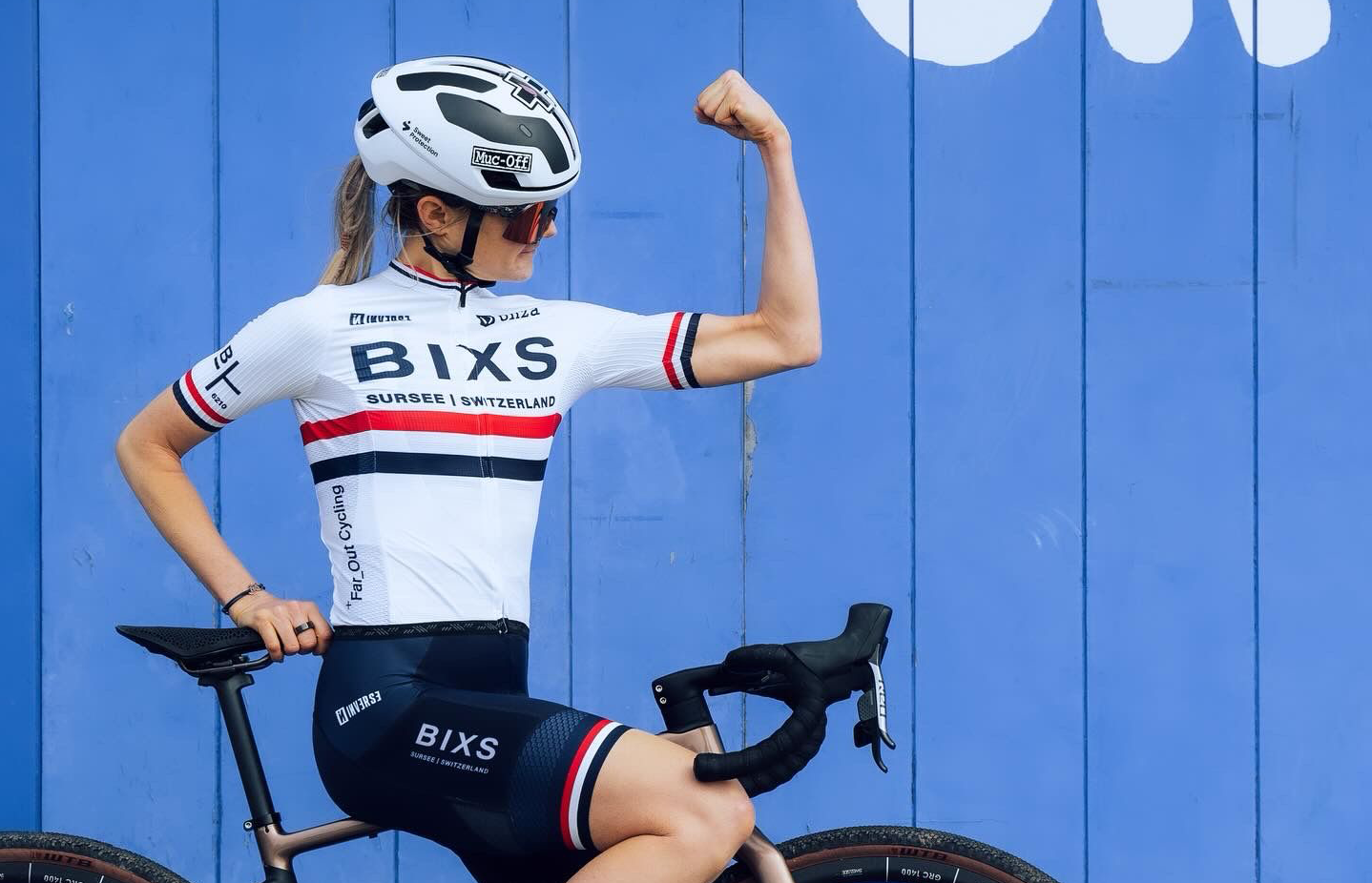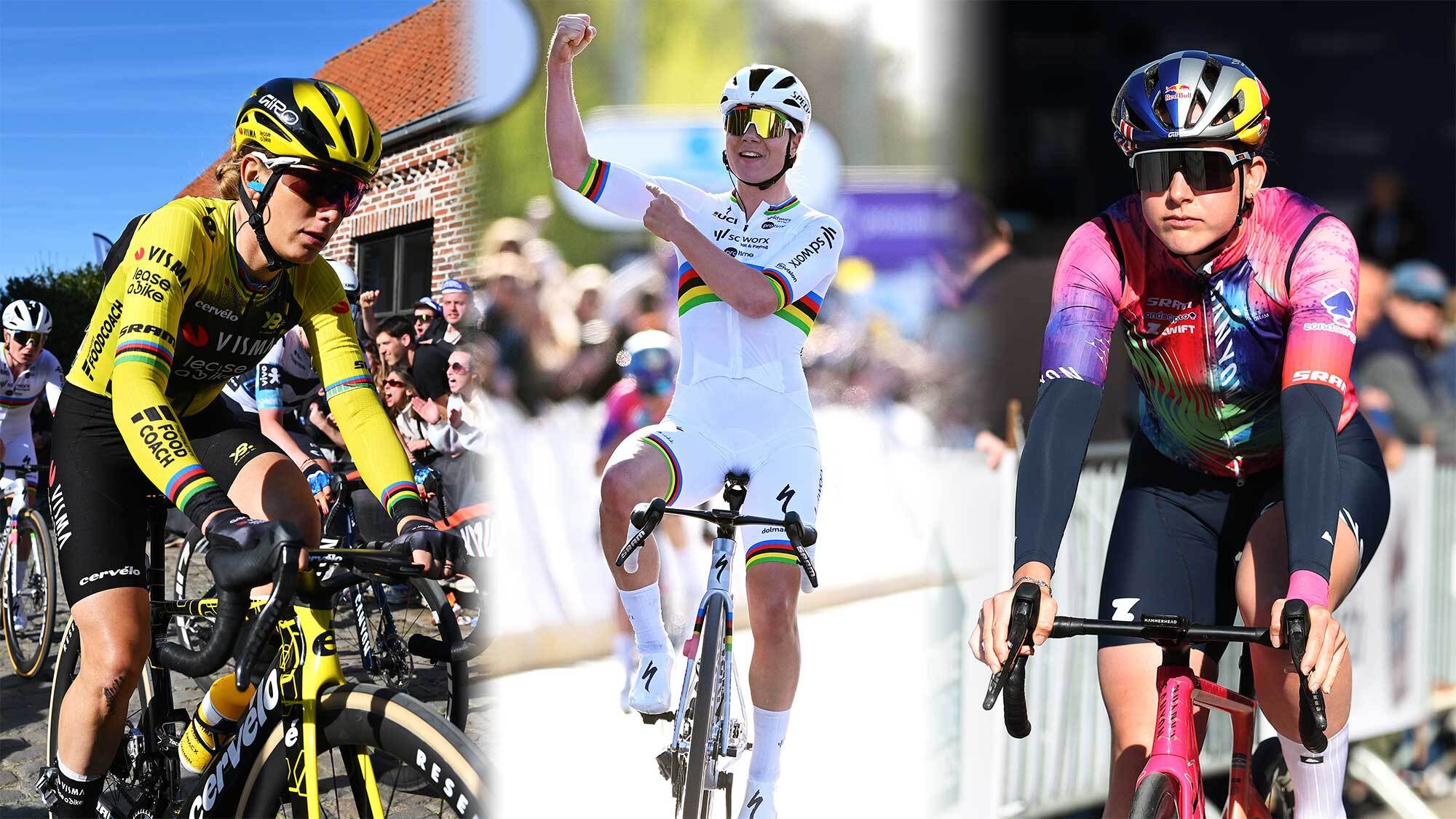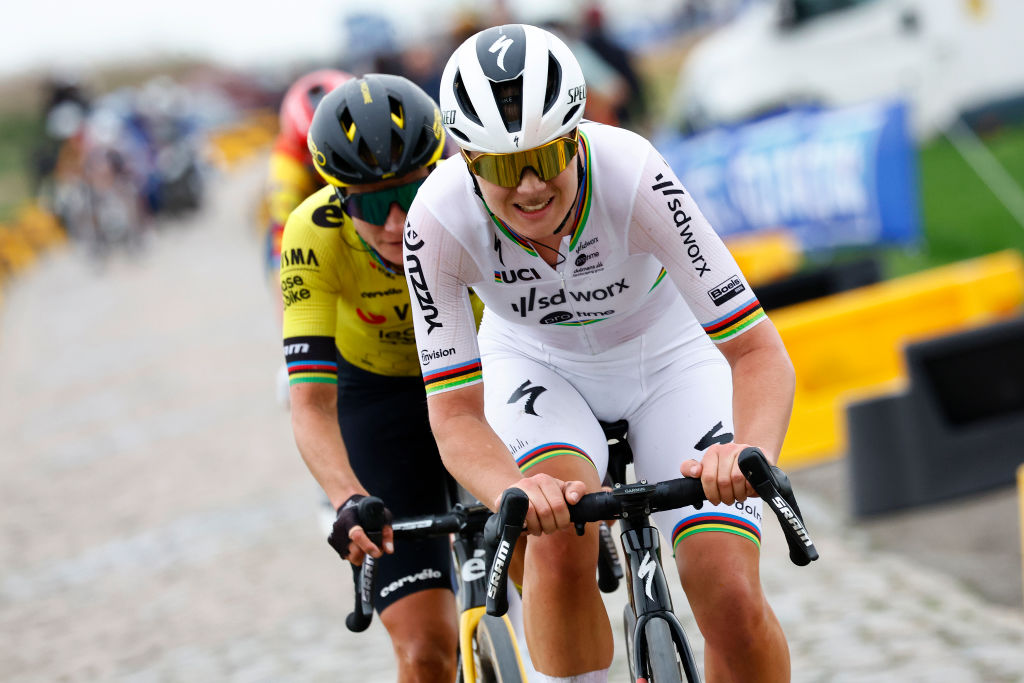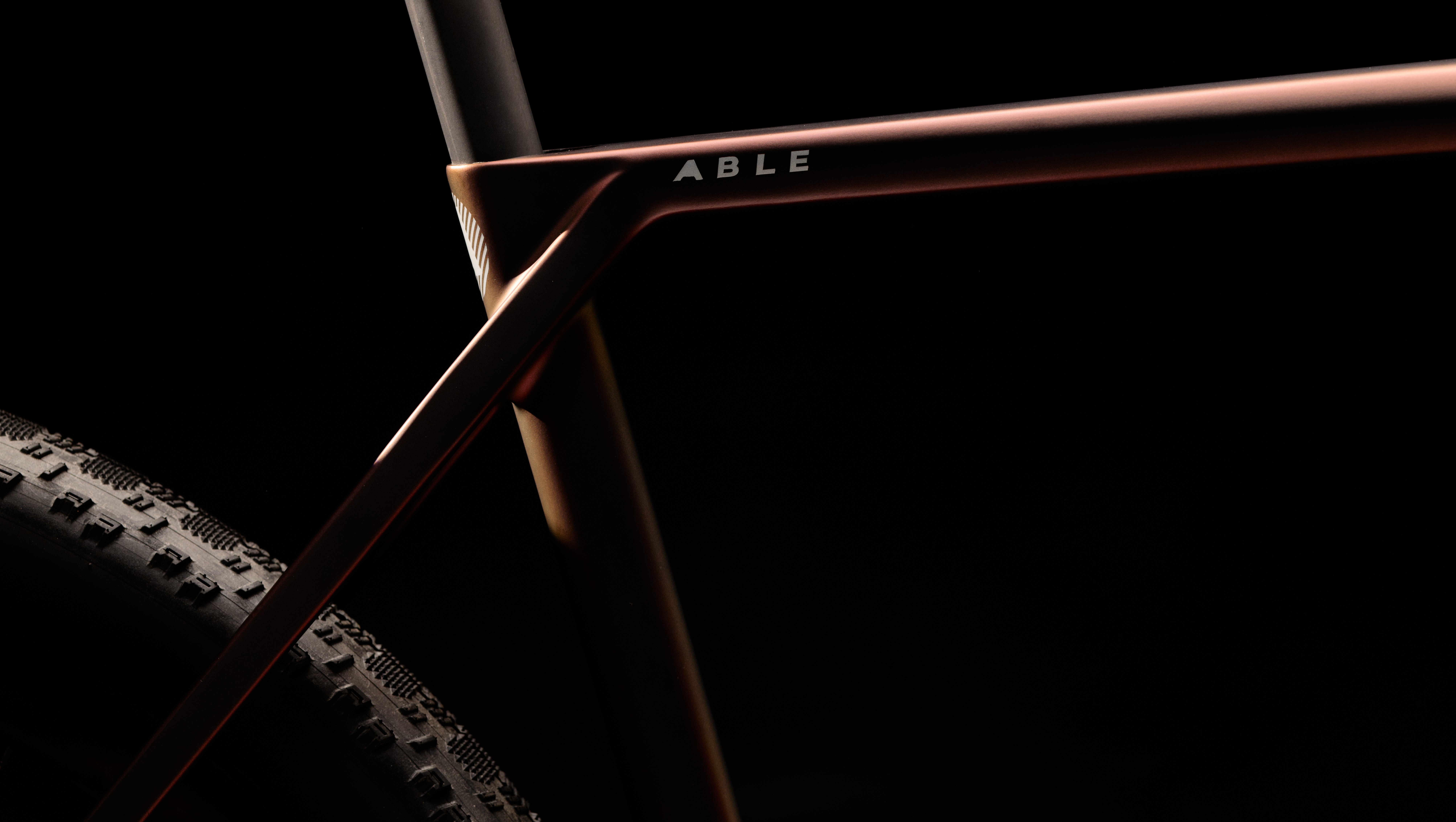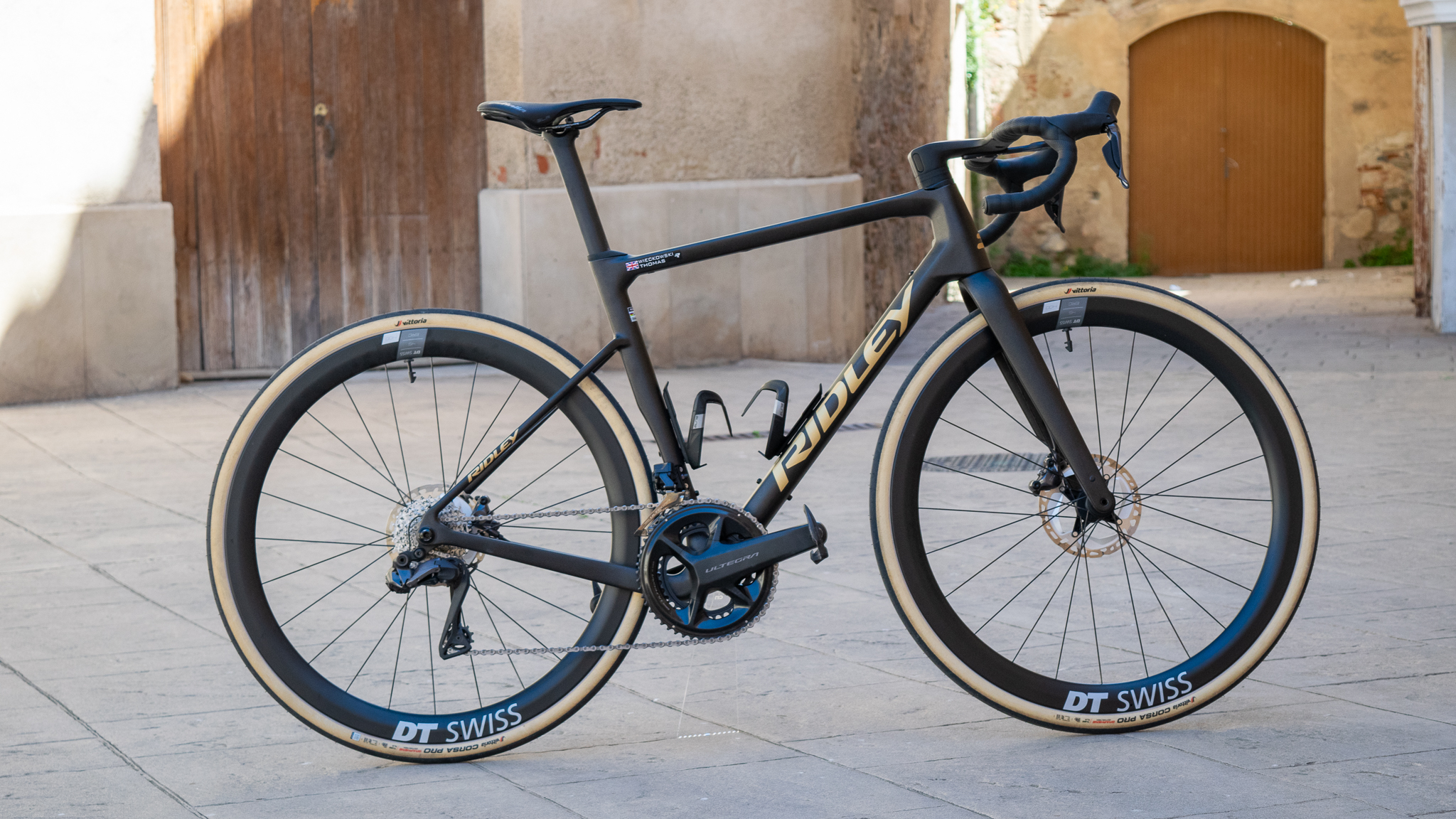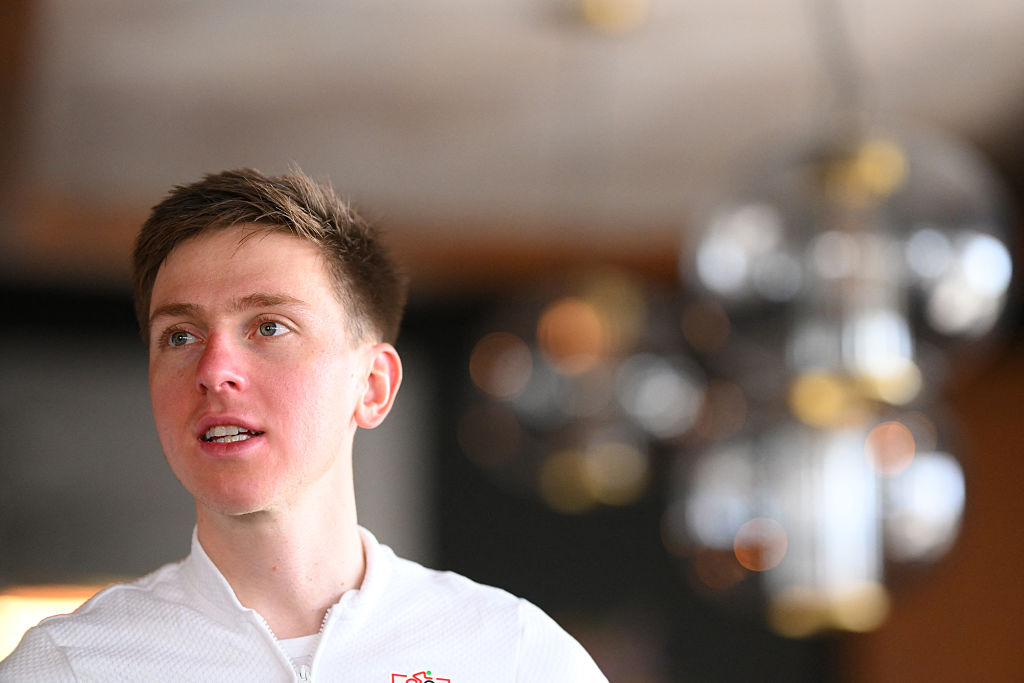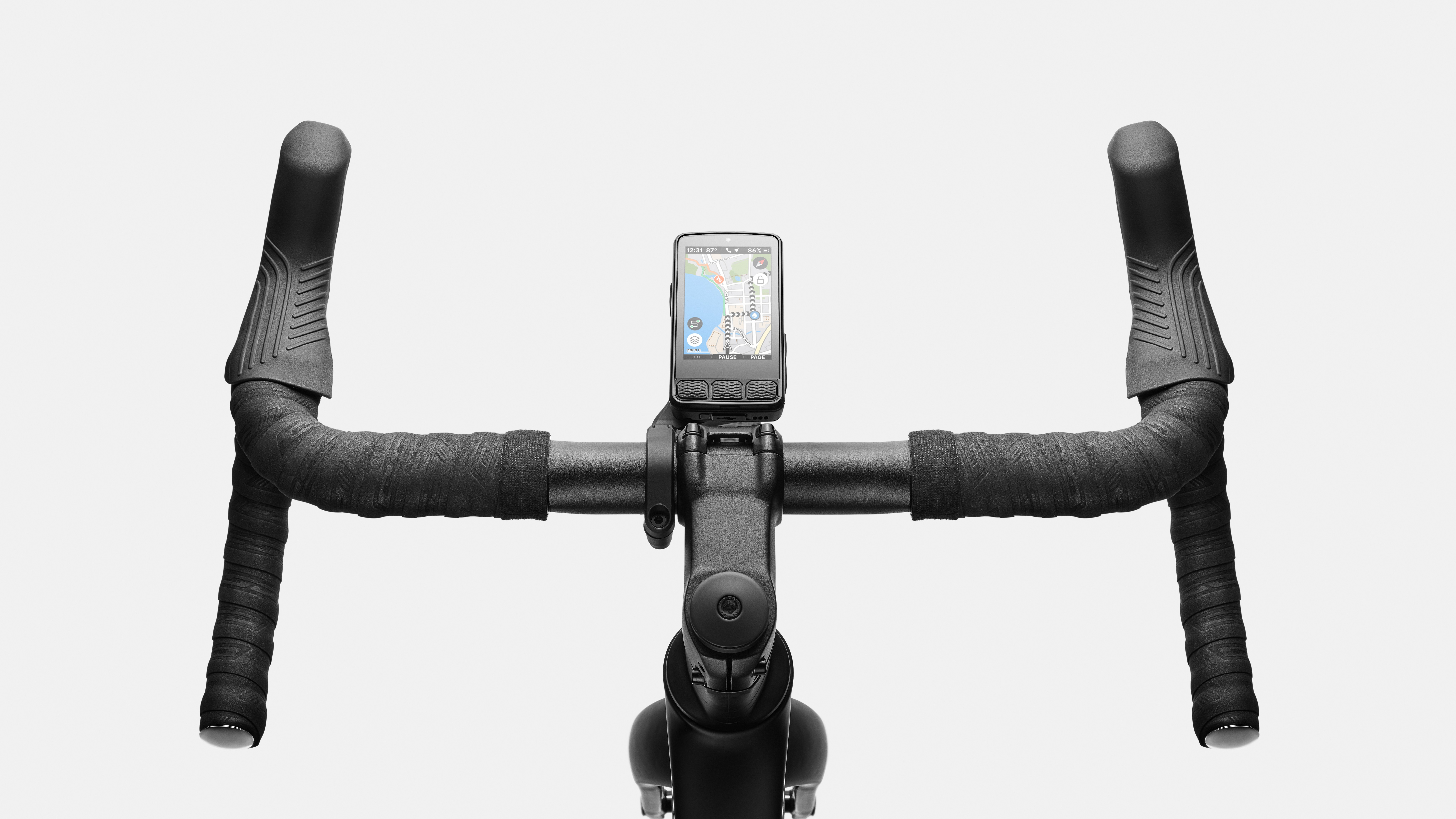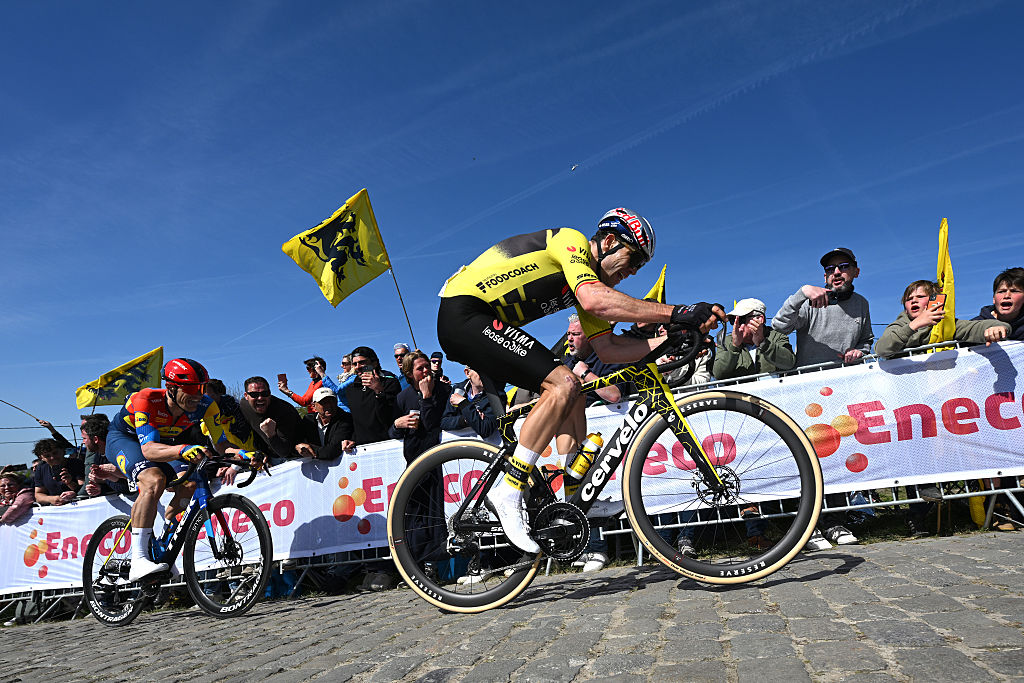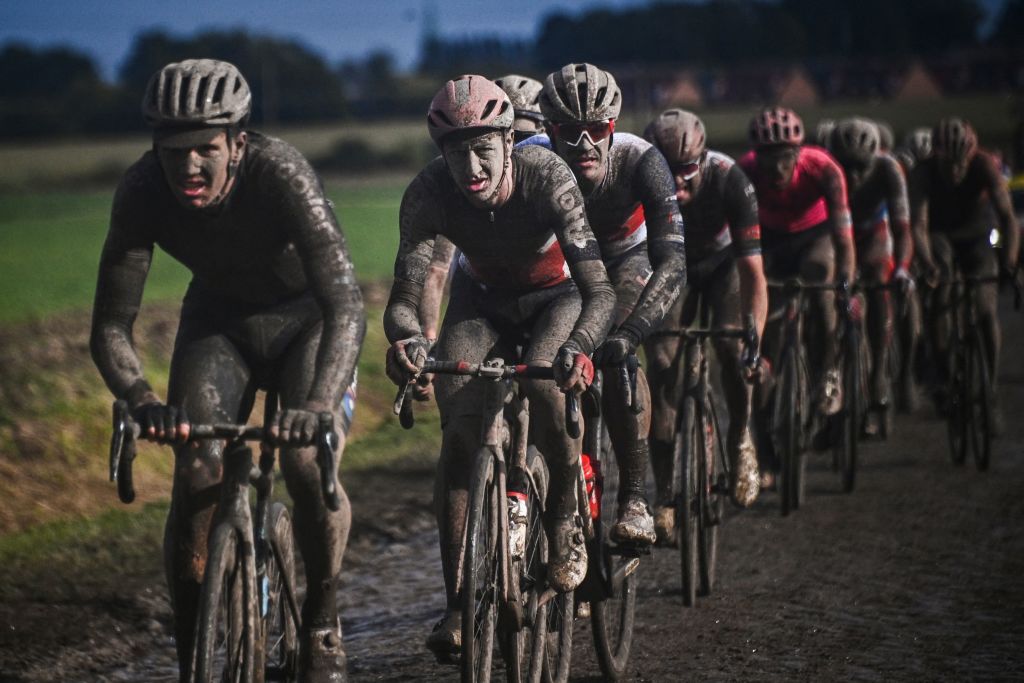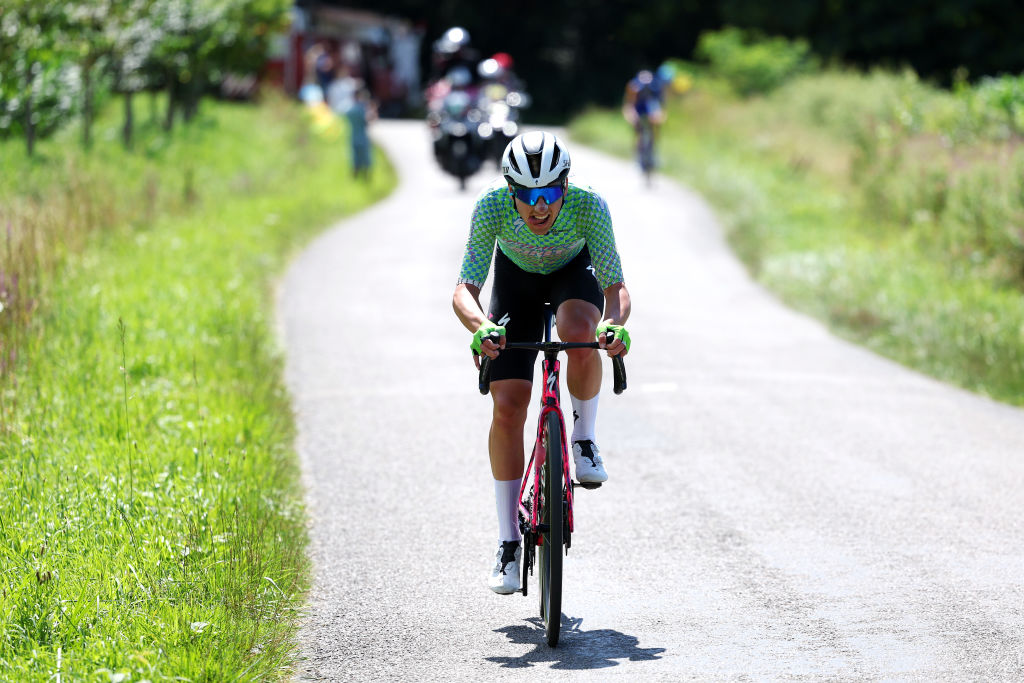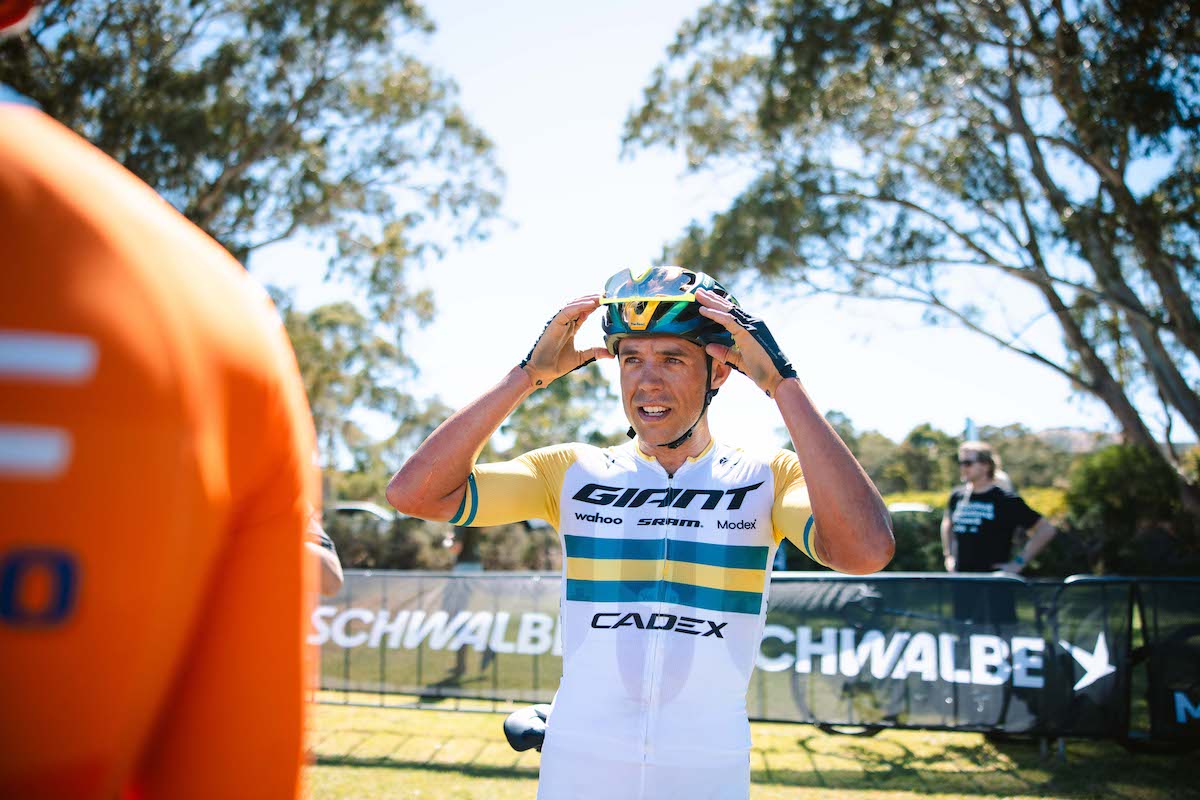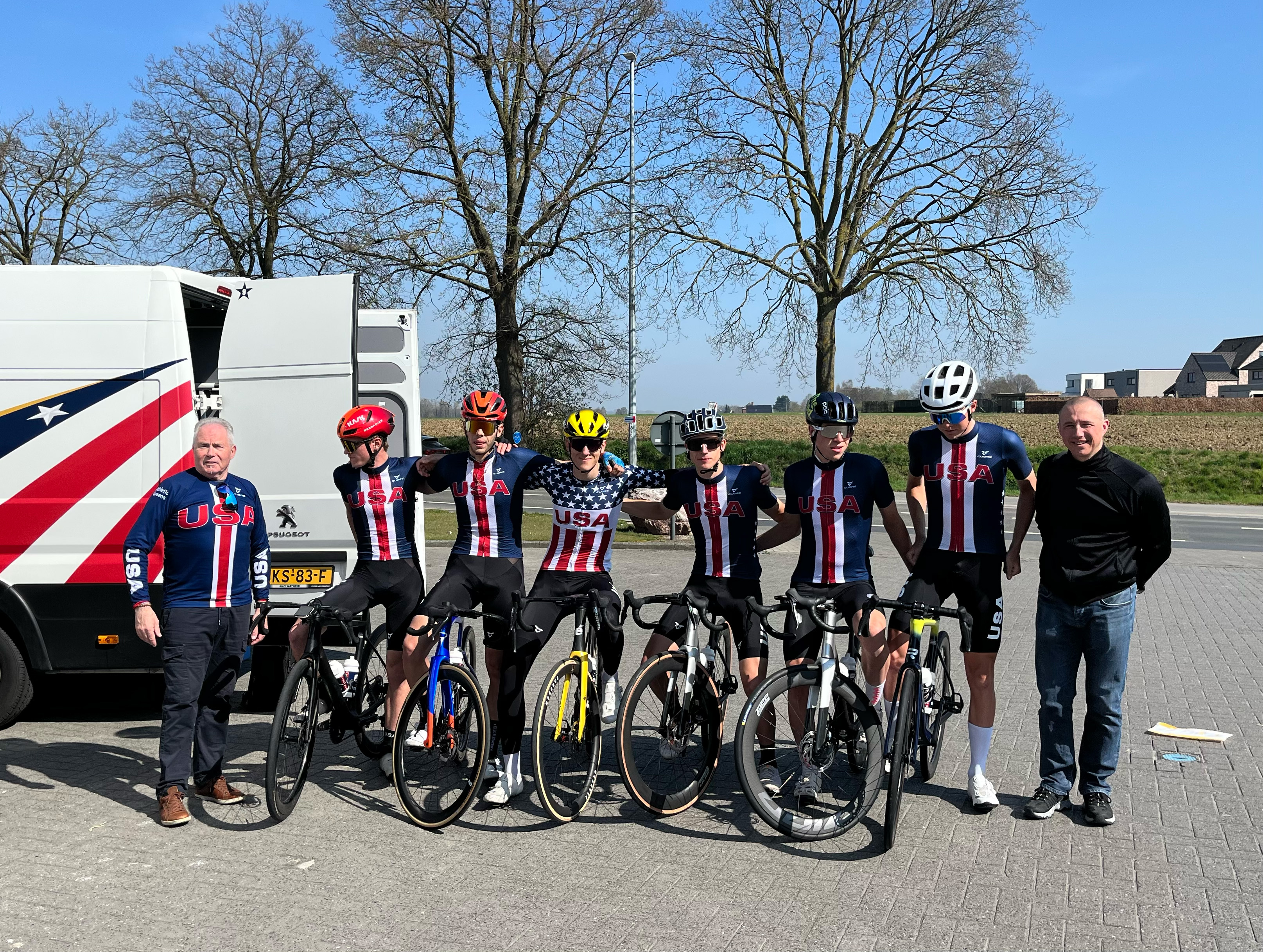Longo Borghini flies the flag for Italy at Imola World Championships
'We were seen as the virus spreaders of Europe in March but now we're seen as an example'
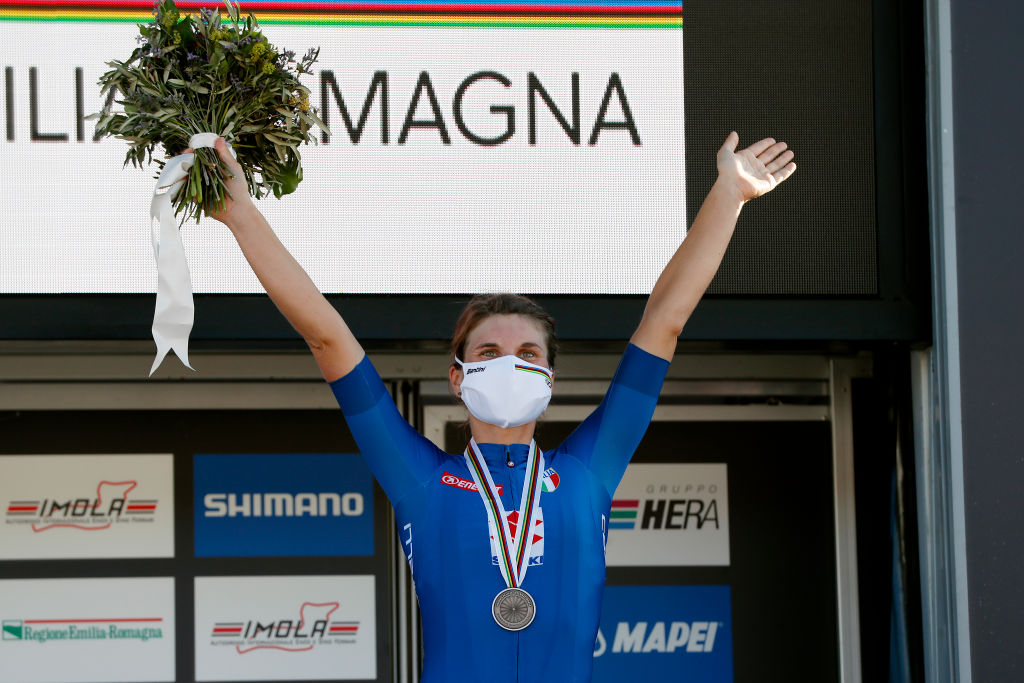
Elisa Longo Borghini proudly flew the flag for Italy at the Imola World Championships, describing her bronze medal as a symbol of her country's response to the COVID-19 pandemic and Italy’s ability to organise a World Championships in just 20 days.
Longo Borghini does not have a fast sprint finish but she is a fighter. She tried to pursue winner Anna van der Breggen after her solo attack and then fought all the way to the line against Annemiek van Vleuten to try to win the silver medal.
The third-place still had a sense of victory and interrupted the total Dutch dominance.
“This bronze medal means so much for me, especially thinking about how Italy was considered back in March. We were seen as the virus spreaders of Europe but now we’re seen as an example in the fight against the pandemic,” Longo Borghini said with pride.
“We’ve managed to organize the World Championships in just 20 days, that’s a record. Last night we told each other in the team not to have any regrets and we couldn't have done better today.”
“My teammates worked so well for me during the race and put me where I needed to be. The only way to thank them was to win the bronze medal. I’m very proud to have won this medal wearing my Italian blue azzurra jersey.”
Longo Borghini is a role model for all of Italian cycling. At 28, after a decade as a professional, she appears to be near her peak. She won the Italian national title in August, was second in the European Championships and finally won a stage at the Giro Rosa after years of going close. She was able to learn about herself and develop even during the COVID-19 lockdown.
Get The Leadout Newsletter
The latest race content, interviews, features, reviews and expert buying guides, direct to your inbox!
“The lockdown was hard for everyone but I also managed to take something positive from it. I was able to stay at home for a long spell and I kept training, even if that meant I had to do 18 hours a week on the turbo trainer,” she explained.
“The rollers are hard to handle when like me you live in a beautiful part of Italy with stunning lakes and fresh air. But the work paid off. At the Clasica Femenina Navarra race I was alone at 60km to go. But I told myself that after doing a similar virtual ride, I could do everything.
“I’ve learnt to how to train really well in recent years and I’ve got to thank my coach Paolo Slongo for that. He’s patient and understands me.”
During the medal winner’s press conference, Annemiek van Vleuten had suggested the success of Dutch riders could be due to them having the independence to focus on sport at a high level and to have the freedom to dedicate their lives to racing and training.
Longo Borghini argued Italian women also have the same independence and just lacked the media visibility and live television coverage of women’s races.
Her bronze medal and gusty ride meant Longo Borghini was the right person to give advice to the Italian elite men, who will race on Sunday.
She offered them some valuable race strategy.
“The course never forgives and hurts,” she warned.
“There are few places to catch your breath, with the motor racing circuit the only flat section between the climbs. Otherwise you're always at full gas to be well placed for the climbs.
“My only advice for the Italian guys is to wait a little on the second climb. If you go too early on the second climb you’ll pay for it.”
Like her rivals in the women’s peloton, Longo Borghini will have little time to savour her bronze medal.
“This is not the peak of my season, my racing won't end until November,” she said.
“There’s still lots of racing to do with Trek-Segafredo. Now I have put down the bronze medal and head to Belgium for Fleche Wallonne.”

Stephen is one of the most experienced member of the Cyclingnews team, having reported on professional cycling since 1994. He has been Head of News at Cyclingnews since 2022, before which he held the position of European editor since 2012 and previously worked for Reuters, Shift Active Media, and CyclingWeekly, among other publications.
